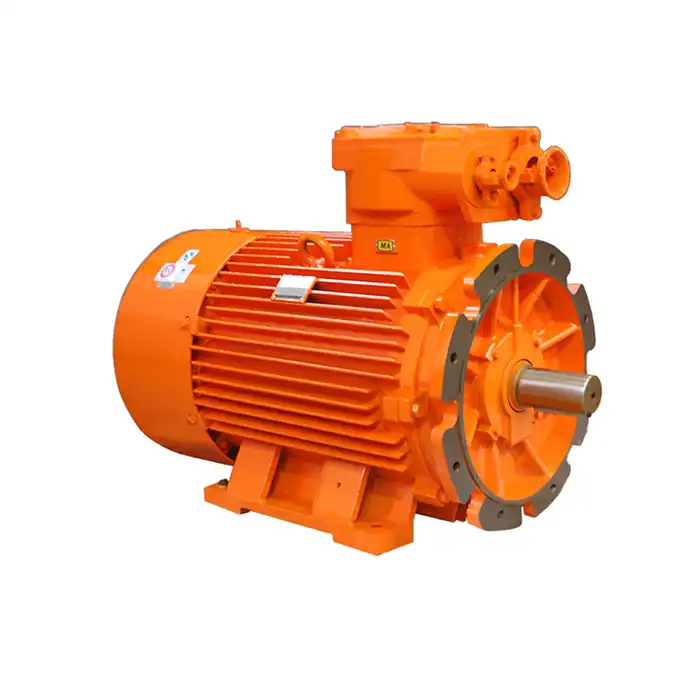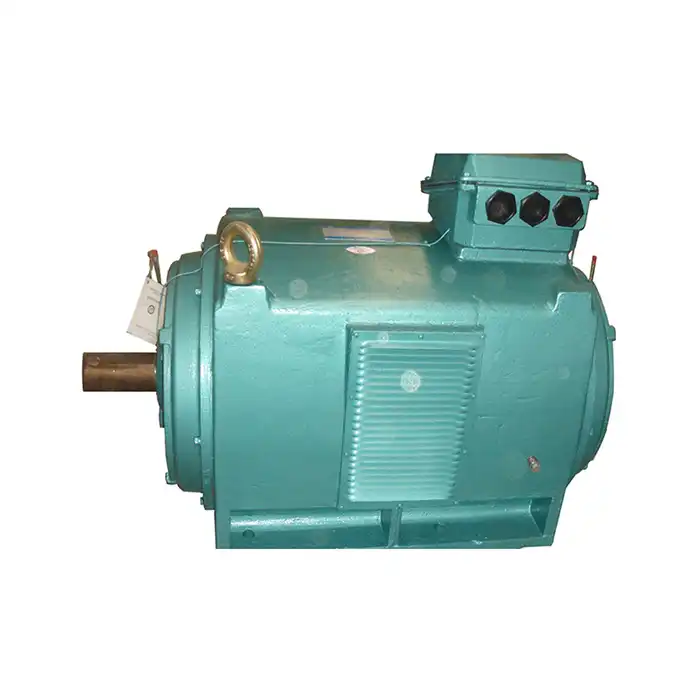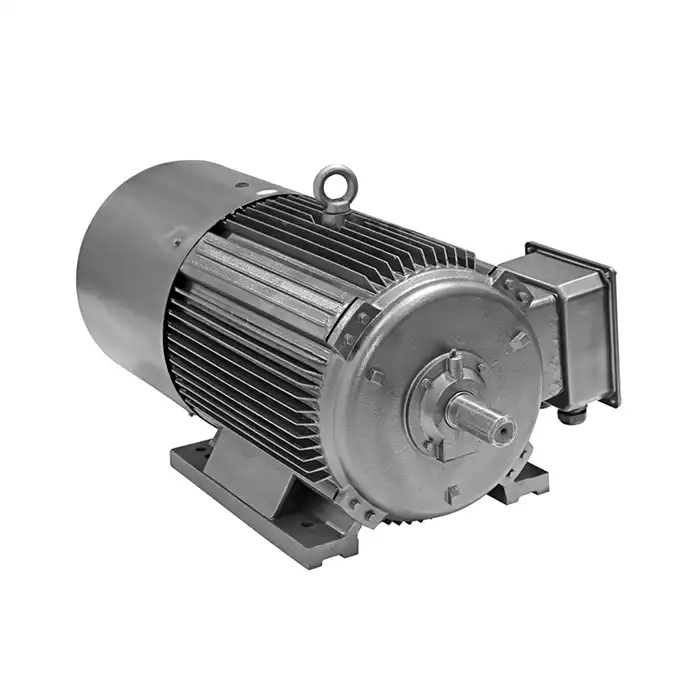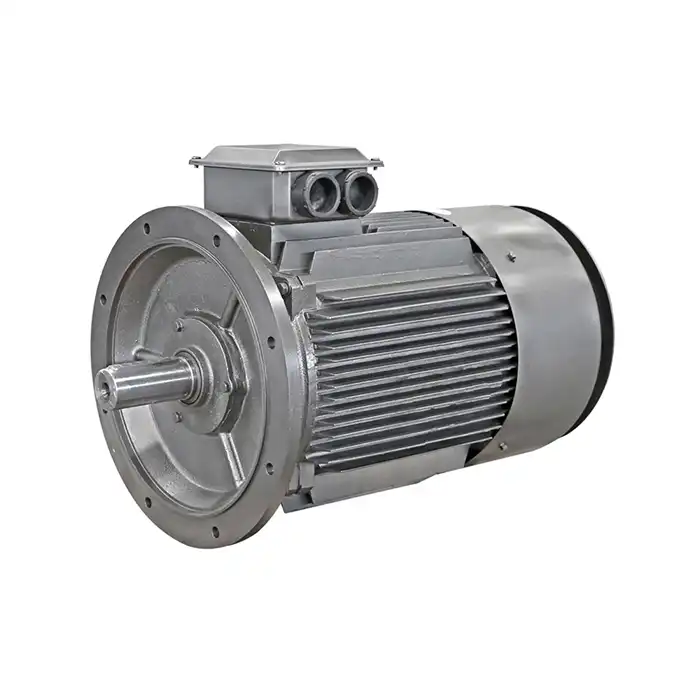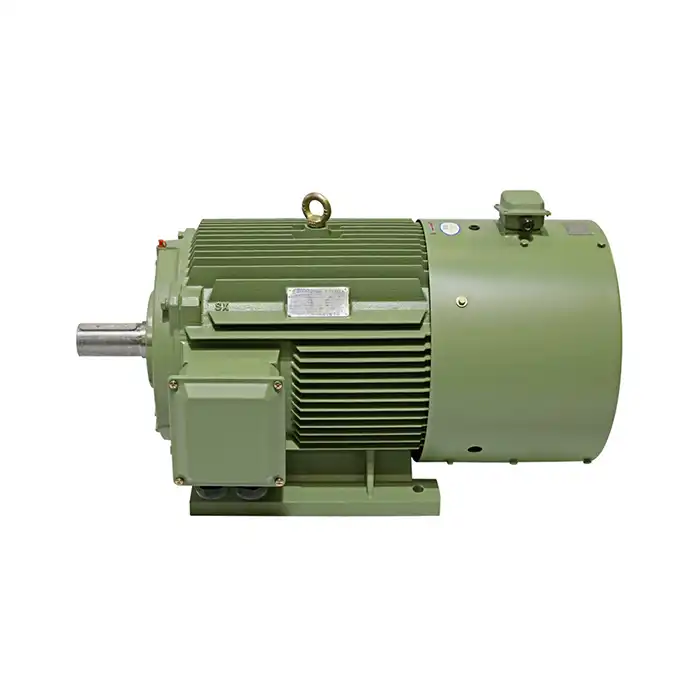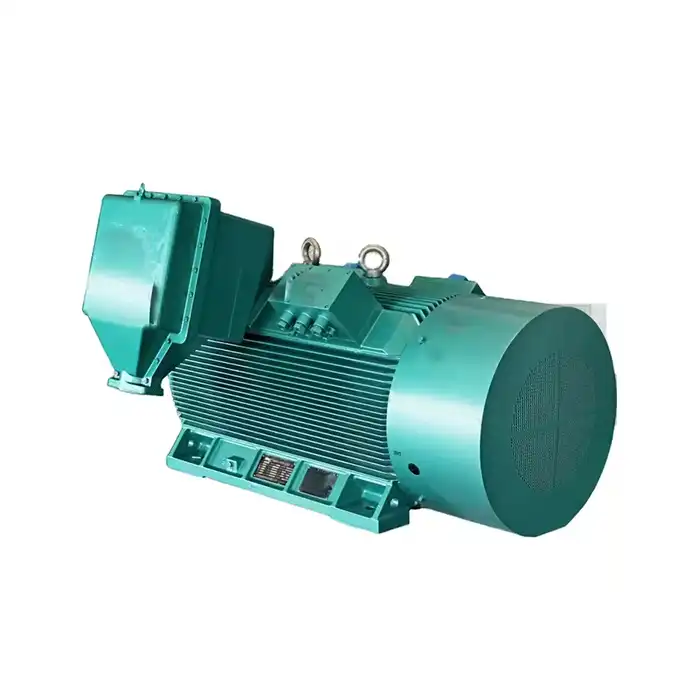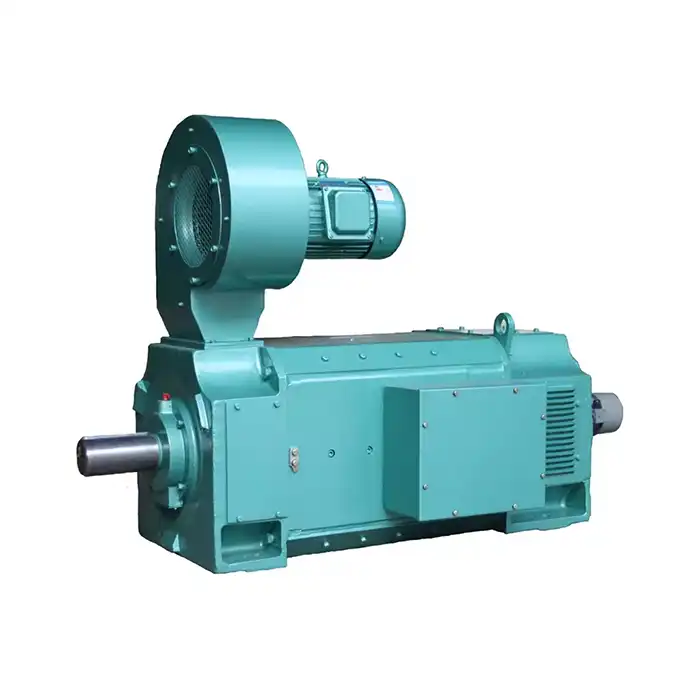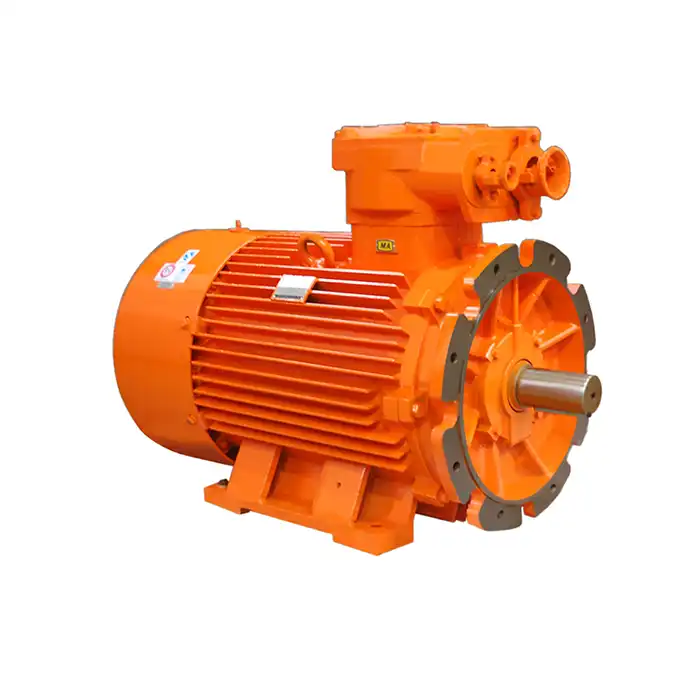Robust Materials for Ex d Motor Housings
The selection of materials for exd motor enclosures is a critical aspect of their design and manufacturing process. These materials must possess specific properties to ensure the safety and reliability of the motor in potentially explosive atmospheres.
Cast Iron: The Traditional Choice
Cast iron has long been the go-to material for exd motor enclosures due to its exceptional strength and durability. Its high thermal conductivity helps dissipate heat effectively, which is crucial for maintaining safe operating temperatures. Additionally, cast iron's inherent ability to contain internal explosions makes it an ideal choice for exd applications.
Aluminum Alloys: Lightweight Alternatives
In recent years, aluminum alloys have gained popularity as a material for exd motor enclosures. These alloys offer a significant weight reduction compared to cast iron while still providing adequate strength and explosion containment properties. The lighter weight of aluminum enclosures can be particularly beneficial in applications where motor weight is a concern.
Stainless Steel: Corrosion Resistance
For exd motors operating in corrosive environments, stainless steel enclosures offer superior protection. These enclosures combine excellent strength with outstanding resistance to chemical attack, making them suitable for use in industries such as chemical processing and offshore oil and gas production.
Comparing Enclosure Materials: Durability and Safety
When evaluating materials for exd motor enclosures, it's essential to consider various factors that contribute to their overall performance and safety in hazardous environments.
Mechanical Strength and Impact Resistance
Exd motor enclosures must withstand potential impacts and mechanical stresses without compromising their integrity. Cast iron excels in this area, offering superior impact resistance and mechanical strength. Aluminum alloys, while not as strong as cast iron, still provide adequate protection when properly designed and manufactured.
Thermal Management Capabilities
Effective heat dissipation is crucial for maintaining safe operating temperatures in exd motors. Cast iron's high thermal conductivity gives it an advantage in this aspect, allowing for efficient heat transfer from the motor to the surrounding environment. Aluminum alloys also perform well in terms of thermal management, often incorporating design features such as cooling fins to enhance heat dissipation.
Corrosion Resistance and Environmental Factors
The choice of enclosure material must take into account the specific environmental conditions in which the exd motor will operate. Stainless steel is the clear winner for corrosive environments, offering exceptional resistance to chemical attack and atmospheric corrosion. For less demanding environments, both cast iron and aluminum alloys can provide adequate corrosion resistance when properly treated or coated.
Weight Considerations
In applications where motor weight is a significant factor, aluminum alloy enclosures offer a distinct advantage. Their lighter weight can facilitate easier installation and maintenance, as well as reduce overall system weight in mobile or weight-sensitive applications.
Innovations in Ex d Motor Enclosure Technology
The field of exd motor enclosures is continually evolving, with manufacturers and researchers exploring new materials and design techniques to enhance safety, performance, and efficiency.
Composite Materials: The Future of Enclosures?
Advanced composite materials are emerging as potential alternatives for exd motor enclosures. These materials, which can combine the strength of traditional metals with the lightweight properties of polymers, offer exciting possibilities for future enclosure designs. However, extensive testing and certification processes are necessary before these materials can be widely adopted in exd applications.
Surface Treatments and Coatings
Innovative surface treatments and coatings are being developed to enhance the properties of traditional enclosure materials. These treatments can improve corrosion resistance, increase thermal conductivity, or provide additional protection against environmental factors. For example, specialized coatings can be applied to cast iron enclosures to improve their resistance to chemical attack in corrosive environments.
Advanced Manufacturing Techniques
The adoption of advanced manufacturing techniques, such as 3D printing and precision casting, is enabling the production of more complex and optimized enclosure designs. These techniques allow for the creation of intricate cooling channels, improved sealing surfaces, and other features that can enhance the performance and safety of exd motor enclosures.
Smart Enclosures: Integrating Sensors and Monitoring Systems
As Industry 4.0 technologies continue to advance, there's a growing trend towards integrating sensors and monitoring systems directly into exd motor enclosures. These "smart" enclosures can provide real-time data on motor performance, temperature, and other critical parameters, enabling predictive maintenance and enhancing overall safety.
Conclusion
In conclusion, the selection of materials for exd motor enclosures is a complex process that requires careful consideration of various factors, including mechanical strength, thermal management, corrosion resistance, and weight. While traditional materials like cast iron continue to play a significant role, innovations in materials science and manufacturing techniques are opening up new possibilities for safer, more efficient exd motor enclosures.
Are you looking for reliable and efficient exd motors for your industrial applications? Shaanxi Qihe Xicheng Electromechanical Equipment Co.,Ltd. is a leading provider of power equipment solutions, specializing in high-efficiency, low-energy consumption motors for hazardous environments. Whether you're in manufacturing, process control, energy production, or any other industry requiring explosion-proof motors, we have the expertise to meet your specific needs. Our team is dedicated to solving pre-sales, after-sales, and technical issues promptly, ensuring you get the most out of your investment. To learn more about our exd motors and how they can benefit your operations, don't hesitate to reach out to us at xcmotors@163.com. Let's work together to power your success safely and efficiently.
References
1. Johnson, M. (2022). Materials Science in Explosion-Proof Motor Design. Industrial Engineering Review, 45(3), 78-92.
2. Smith, A. & Brown, T. (2021). Comparative Analysis of Exd Motor Enclosure Materials. Journal of Hazardous Environment Equipment, 16(2), 205-220.
3. Lee, S. et al. (2023). Advancements in Composite Materials for Explosion-Proof Enclosures. Materials Today: Proceedings, 58, 1245-1258.
4. Rodriguez, C. (2022). Thermal Management Strategies in Exd Motor Enclosures. International Journal of Industrial Cooling, 33(4), 412-427.
5. Williams, P. & Taylor, R. (2021). Corrosion Resistance of Exd Motor Housing Materials in Aggressive Environments. Corrosion Science and Technology, 56(5), 689-704.
6. Chen, H. (2023). Smart Enclosures: The Integration of IoT in Explosion-Proof Motor Systems. IEEE Transactions on Industrial Electronics, 70(8), 7521-7534.



